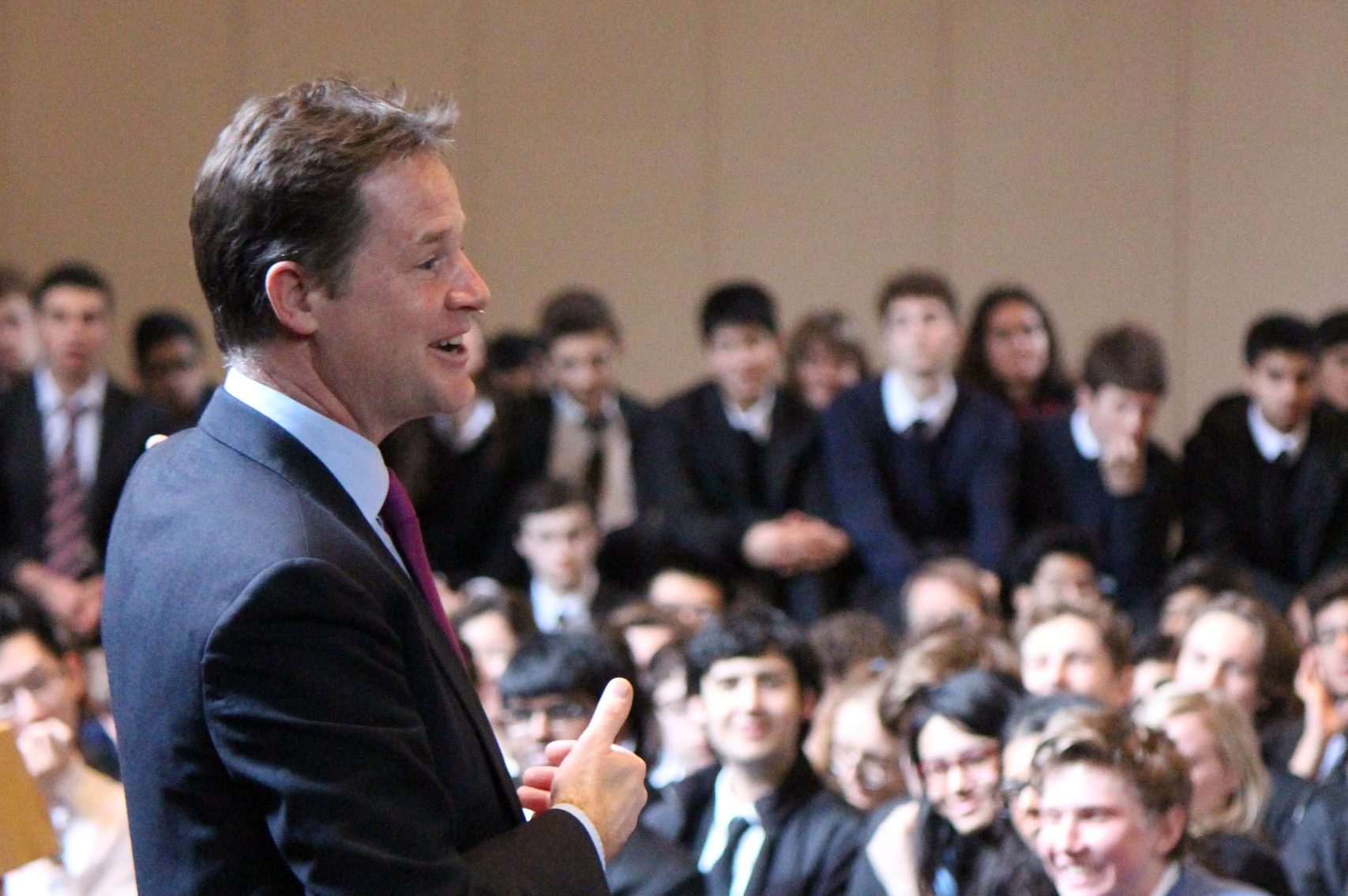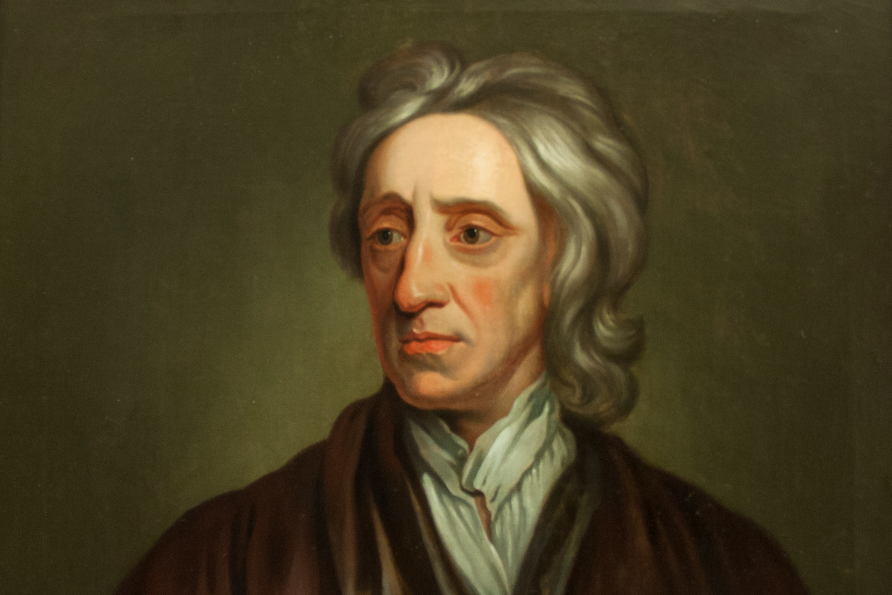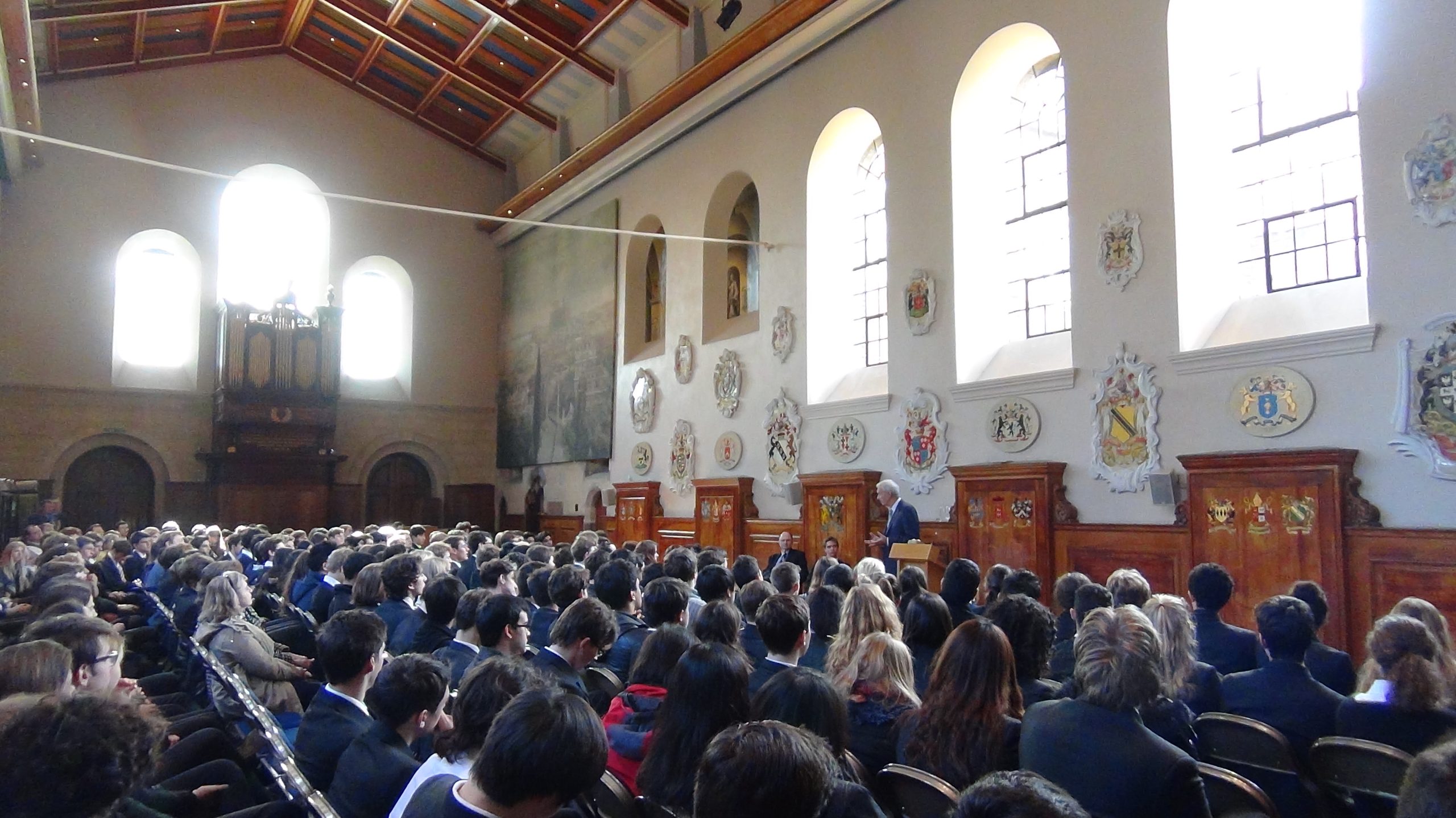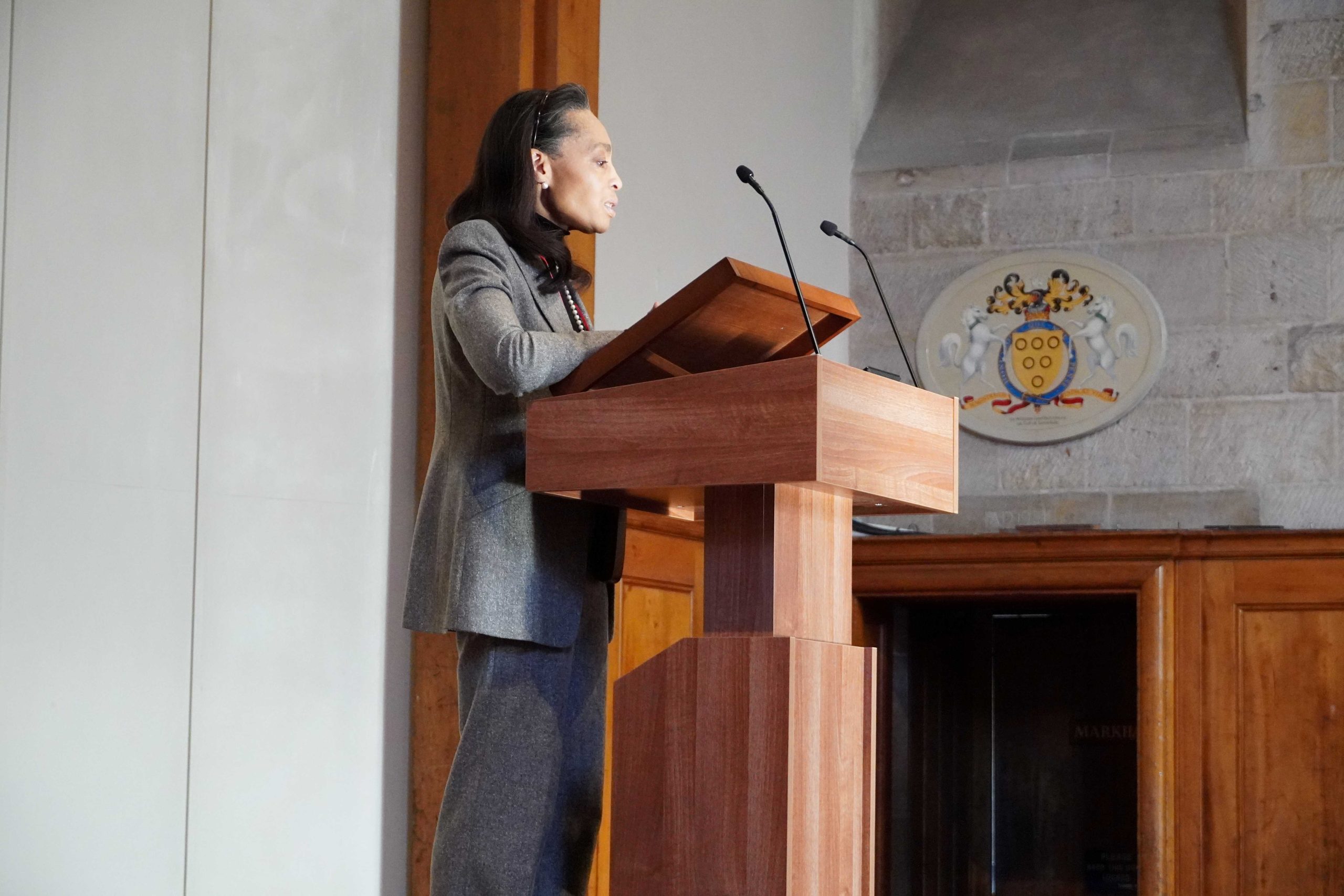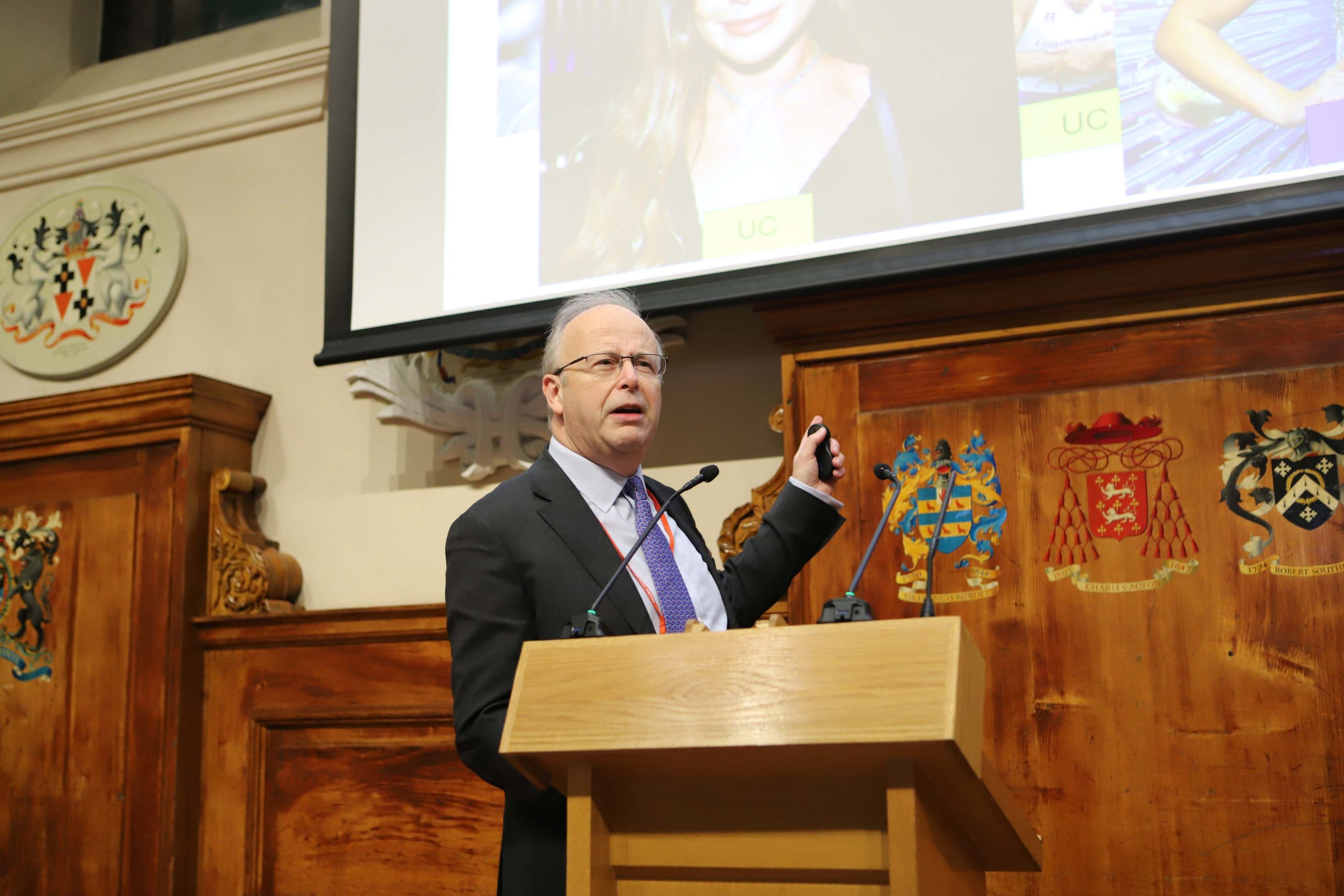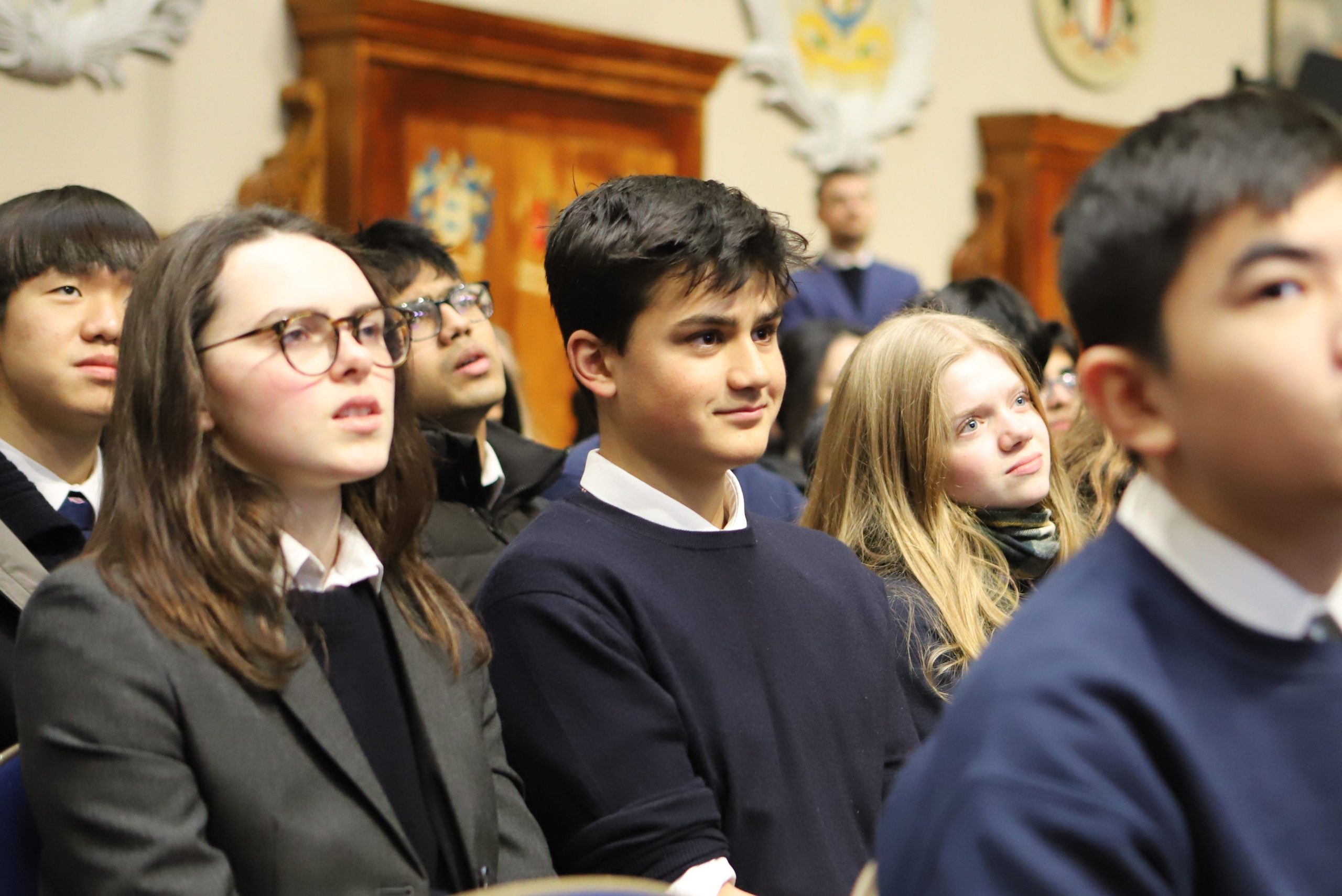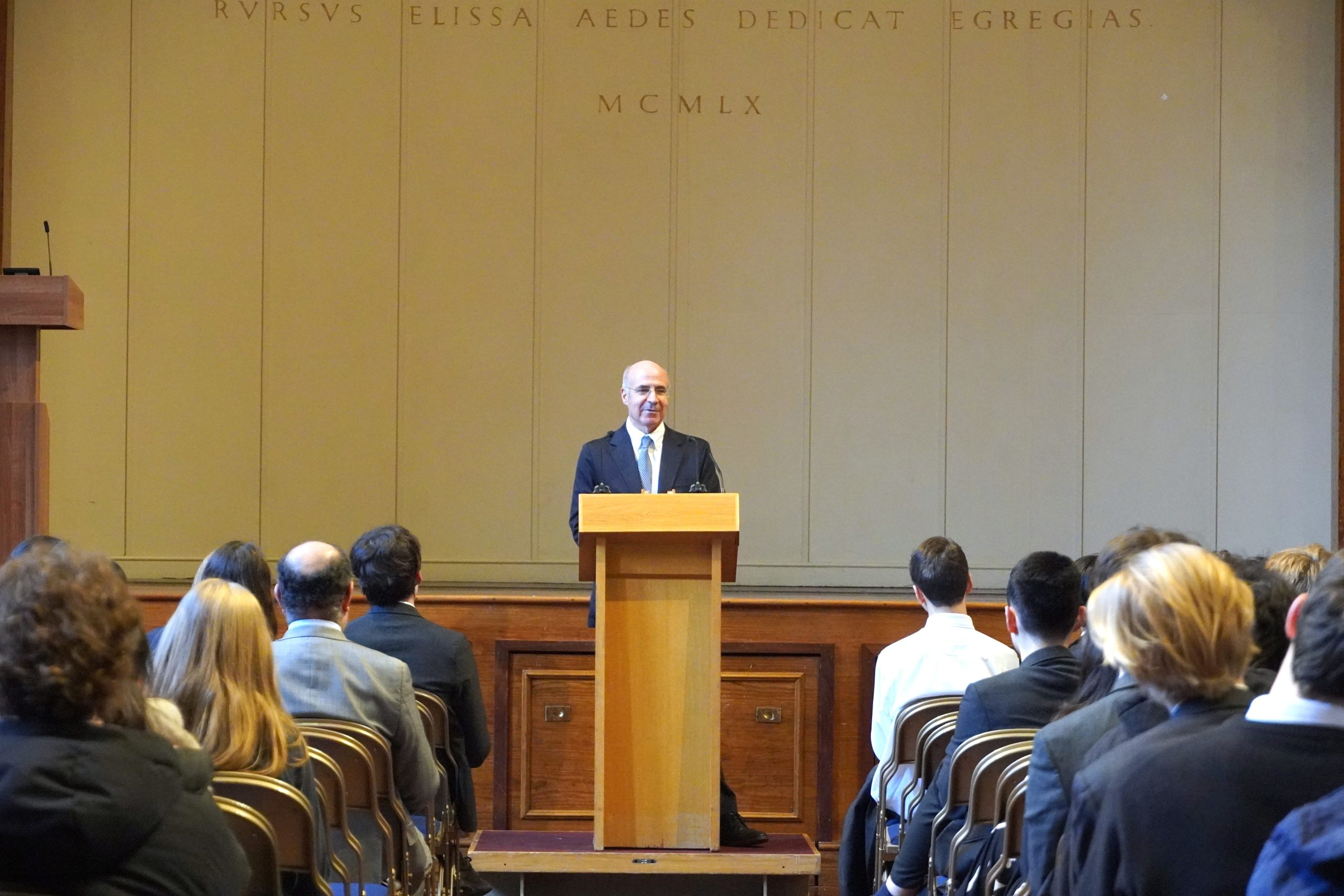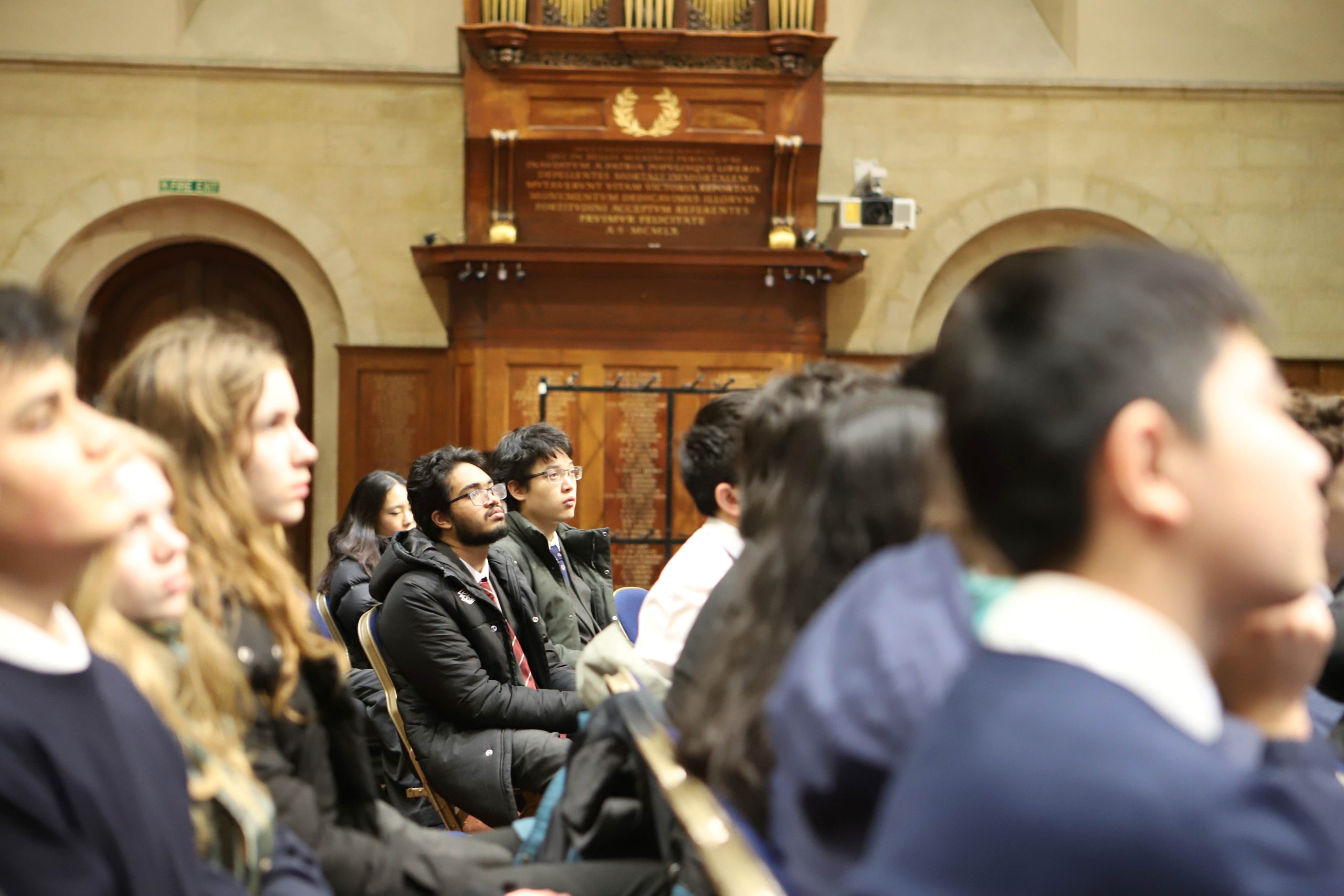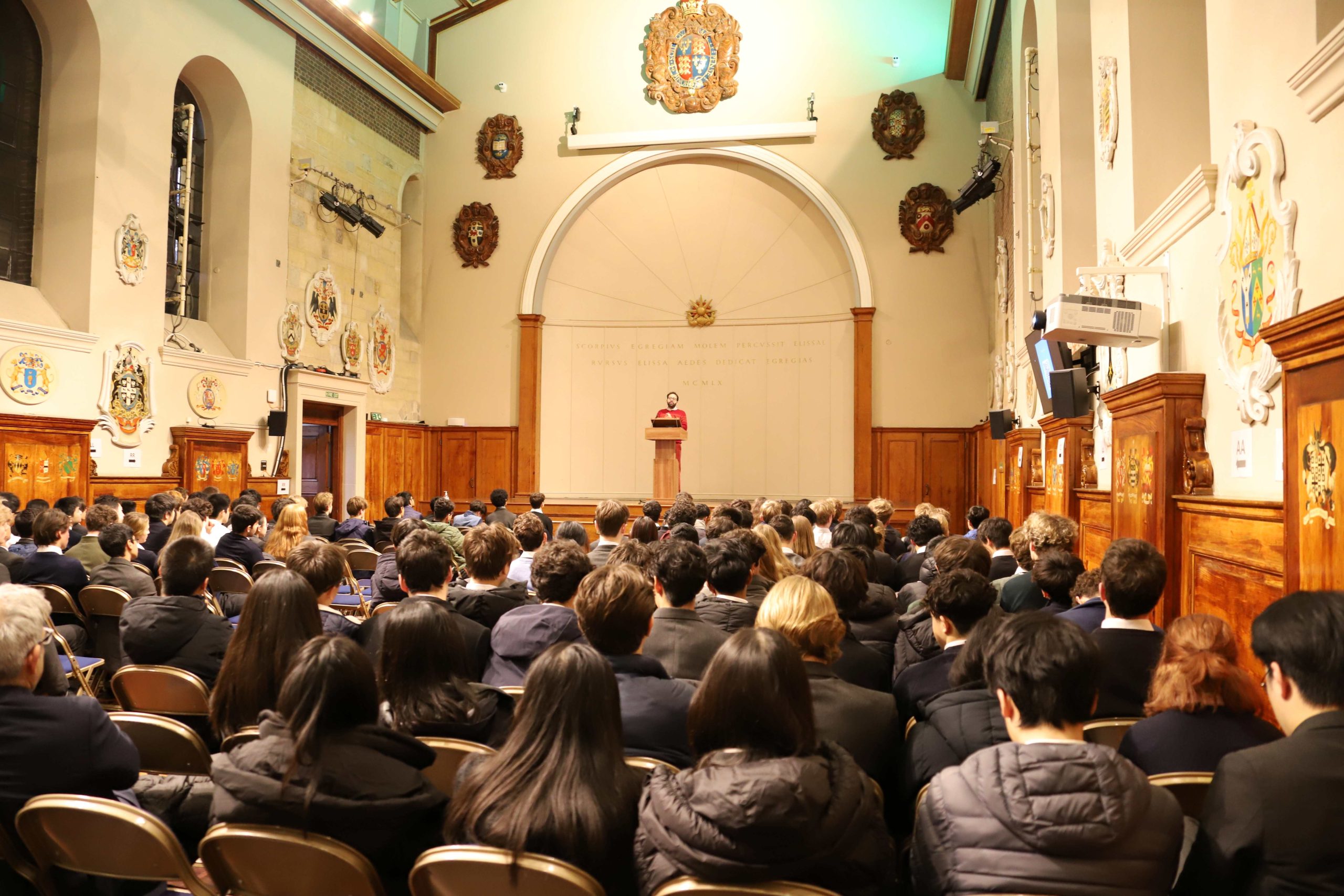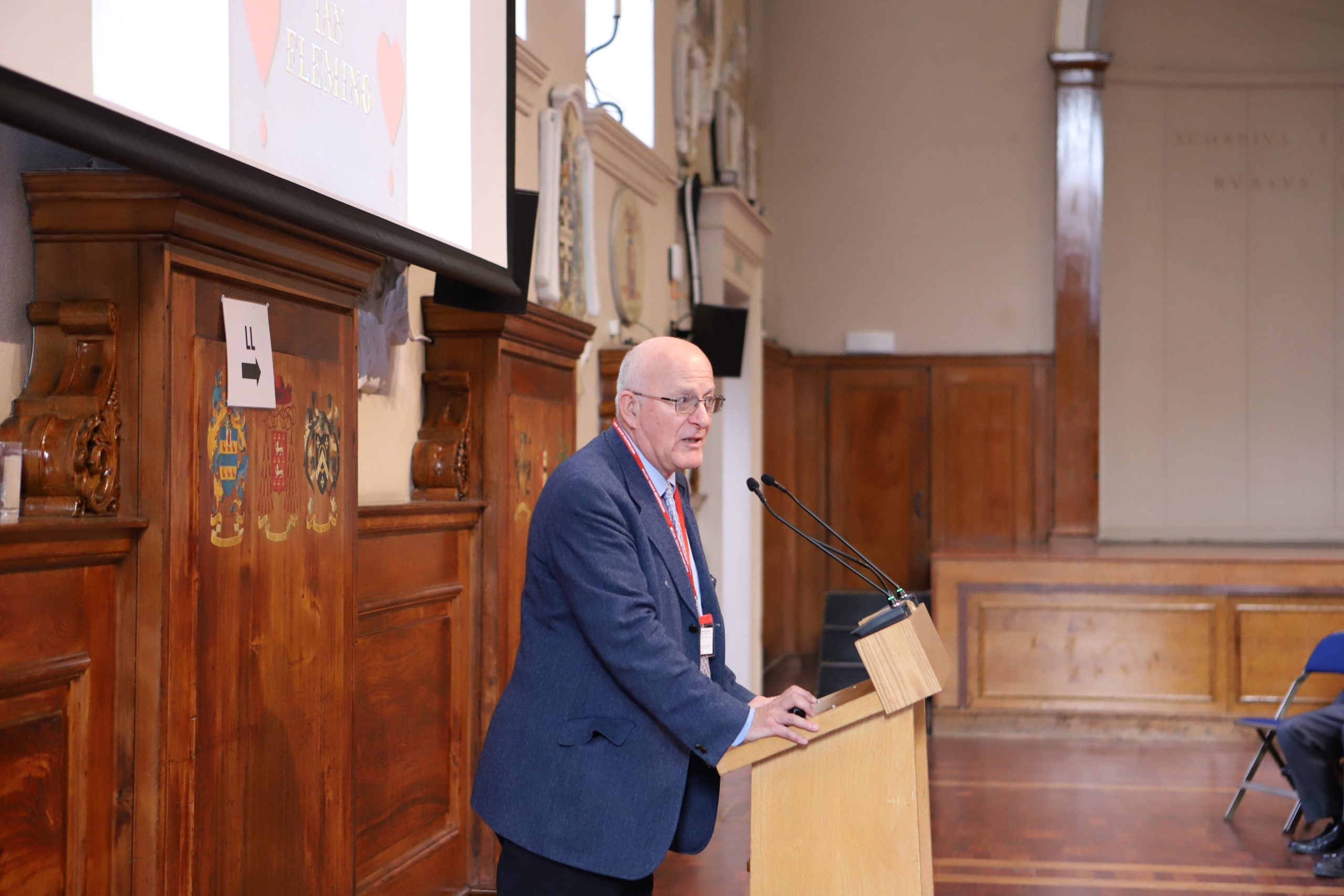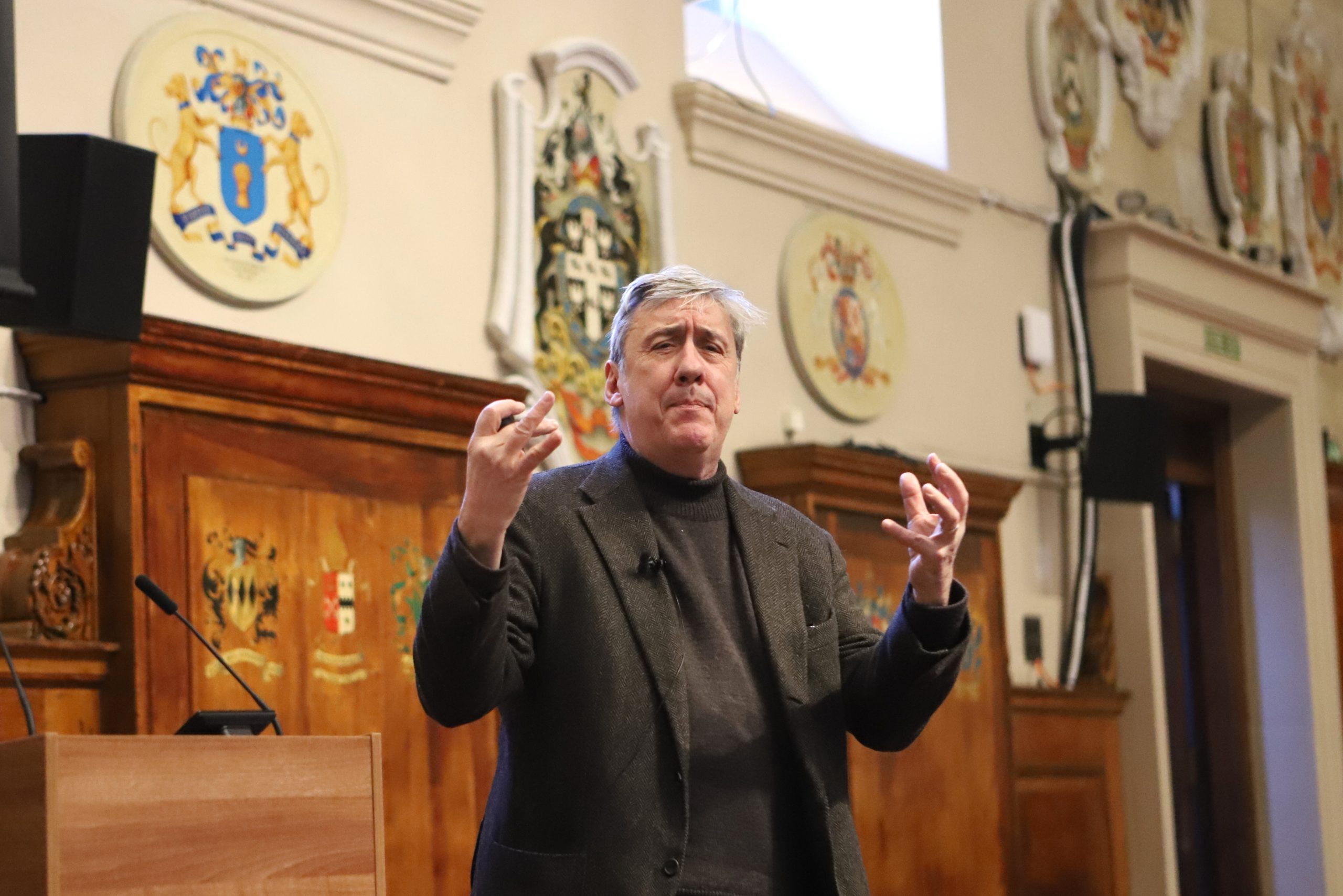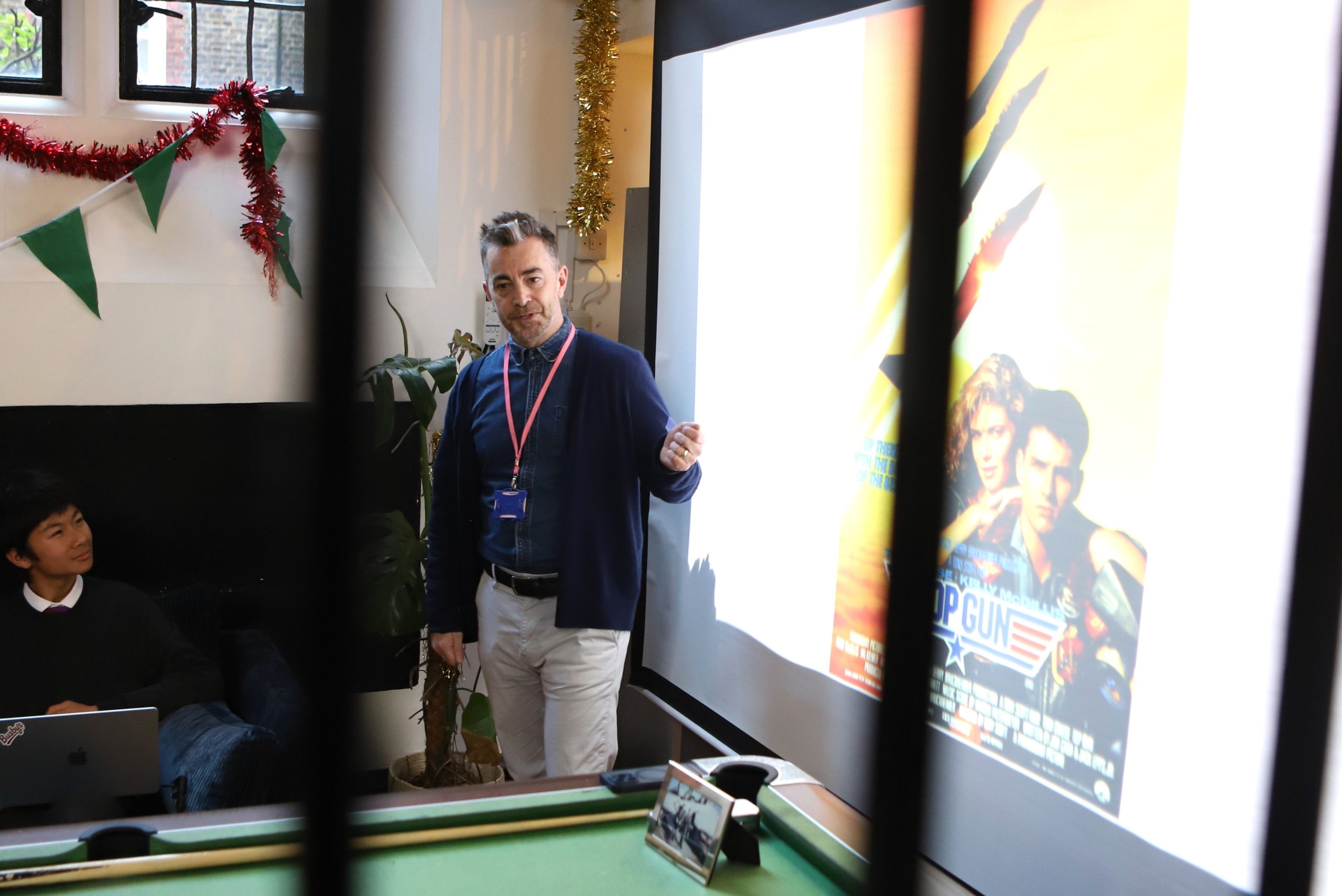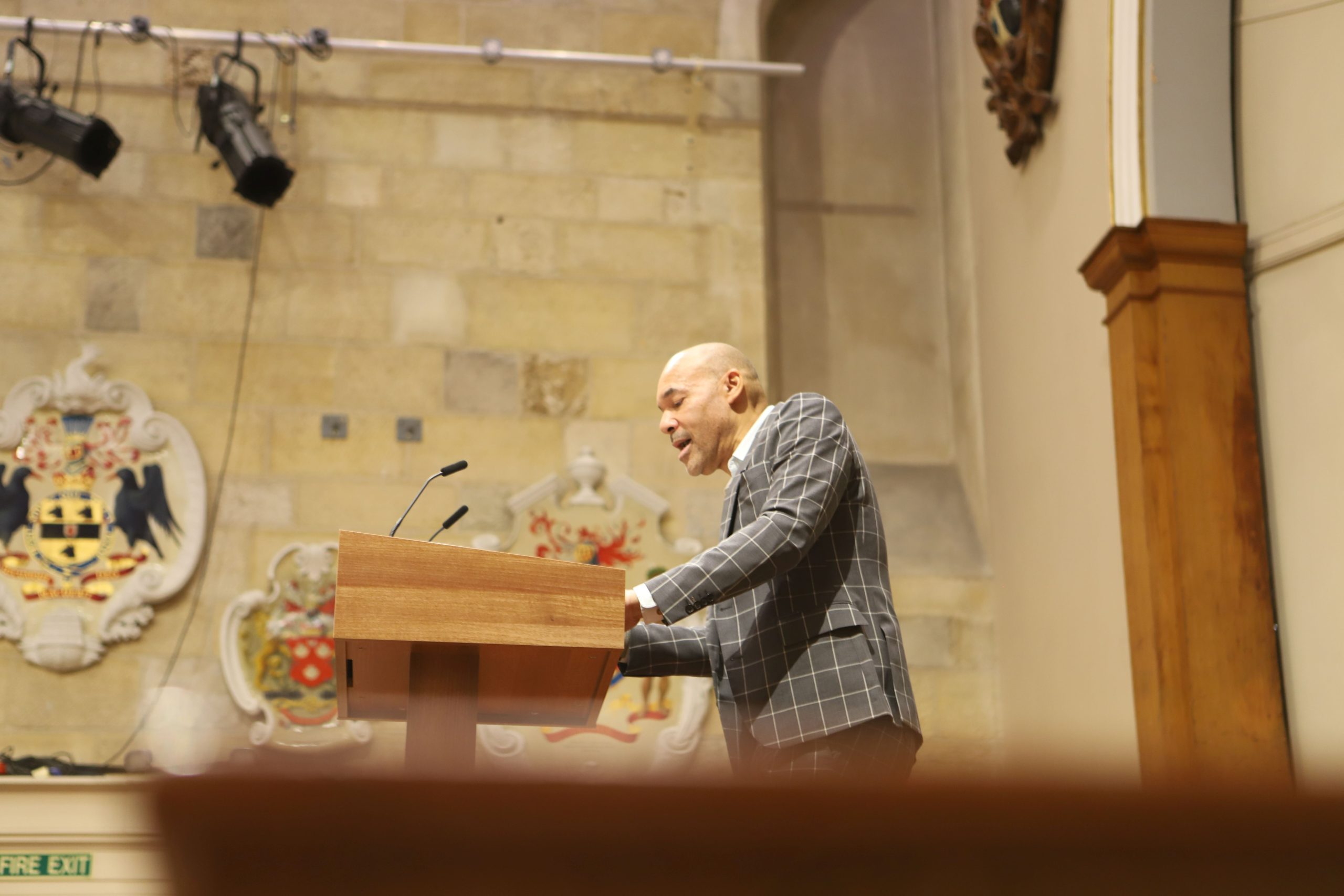For over half a century, Westminsters have listened to eminent speakers from academia, the arts, business, law, politics, and religion, in mind-opening and perception-challenging talks, honouring the School’s ethos of a liberal education
In the 1972 Elizabethan magazine, a pupil reported: “Two new Societies have emerged this term. The Music Society is written about elsewhere. More spectacular still has been the John Locke Society, which has produced packed meetings, showing that Westminsters can show themselves to be not nearly as apathetic as they are made out to be…”.
The article lists the inaugural Locke Society’s speakers, beginning with Mr John Dunn from King’s College Cambridge and his ‘authoritative’ introductory talk on John Locke’s philosophy, followed by a Cardinal on ‘The Catholic Church in Society’, a Judge on ‘Law and Order’, “who showed himself to be far different from the tyrannical ogre depicted by the popular press, but did not really say anything new”, and another philosophical professor from Oxford.
A lot to fit into one term, yet the tradition has continued. Today, lectures cover wider themes than just governance, philosophy and religion, and all Sixth Form pupils attend as part of their co-curricular timetable, rather than being at lunchtime or after school, something which John Locke Coordinator, Dr Seb Blache says “is unique to Westminster as it takes the place of a lesson: it both complements and compliments the intellectual weekly life of a Sixth Form pupil. Its frequency means that pupils are exposed to a wide range of prominent speakers – a bit like having about ten speech days in two terms.”
For a while Locke was a weekly occurrence, but now the School runs fortnightly lectures in the Play and Lent Terms. Pupils can also have lunch with the speaker, a chance to talk and debate further. Head Master, Dr Gary Savage said: “Having attended my first Locke Lecture in 2006, I’m thrilled the series continues to give pupils direct access to important ideas, articulated by distinguished speakers, whom they can interrogate in person, up School and over lunch. That’s a huge privilege which I think they appreciate, and a challenge they certainly rise to. The quality of their questions never ceases to impress me. Truly, Locke is one of the intellectual highlights of the Westminster week.”
A philosopher and physician, John Locke attended the School from 1647. A fierce advocate for protecting natural rights to life, liberty and property, and a believer in philosophical empiricism, Locke is often viewed as the father both of liberalism and Enlightenment, and his works have been used to inform and to guide political movements and governments the world over. It is, for example, well documented that his Two Treatises of Government influenced the Declaration of Independence and the Constitution of the United States. Locke’s focus on freedom of thought and the importance of observation and experience in gaining knowledge fits neatly with the School’s Ethos, Values and Vision, which in turn adhere to the wishes of the School’s founder, Queen Elizabeth I, as reflected in the Elizabethan Charter of 1560: ‘The youth which is growing to adulthood, as tender shoots in the wood of our state, shall be liberally instructed in good books to the greater honour of the state’. The John Locke Lecture Series is an extension of this and aims to equip pupils with as varied and stimulating an education as possible.
2024-2025’s lecture series has remained committed to the Founder’s vision. We welcomed British Ambassador to Finland, Laura Davies OW, who spoke on the sometimes undiplomatic nature of diplomacy. Author, journalist and expert on China, Ian Williams, set out the idea of The China Syndrome. Author, broadcaster and historian, Professor Jane Ridley, asked if George V was a good king. Emeritus Professor of History at Exeter, Jeremy Black, looked at the complicated politics of 007. Chair of Shakespeare’s Globe, Margaret Casely-Hayford CBE, spoke on words as being the mightiest weapon. SOAS lecturer, Dr Paul Giladi OW, took a deep look into world philosophy. Chief Executive at Imperial College Healthcare, Physician and Gastroenterologist, Professor Tim Orchard CBE examined health inequalities and the NHS. Writer, journalist, security specialist and politician, Sir Edward Lucas, examined The New Cold War and why we are losing. Baroness Claire Fox debated the power of debate. And to finish the series, financier and political activist, Sir William Browder KCMG, took a broad look at geopolitics.
The lectures continue to resonate with Sixth Form pupils. Rayan (MM) said: “The John Locke Lecture Series has been both enriching and thought-provoking. The talks are particularly relevant in the current climate and actively shape our perspectives — from hearing Bill Browder speak on justice and corruption in Russia to Professor Tim Orchard discussing NHS inequality in the context of COVID mortality. The lectures consistently challenge assumptions, whether it’s questioning the status quo in teaching pedagogy within philosophy or grappling with Baroness Claire Fox’s views on free speech and the importance of open debate. Each lecture ends in a lively, open discourse, with a flurry of questions from eager students keen to challenge, clarify, and learn more. What makes the series truly special is that the conversation doesn’t stop there — it continues into the Locke Lunches, where students and speakers delve deeper into the pressing issues of today.
“What the series has really taught me is the School’s value of loyal dissent — encouraging us to critically engage with ideas we might not agree with while still respecting the space for open dialogue and thoughtful debate. We’ve been exposed to a remarkable range of life experiences, all of which challenge us to think in new ways. The John Locke Lectures are a key part of what makes Westminster such a unique and intellectually vibrant school. The lectures prepare us to face a complex world with curiosity, confidence, and a genuine openness to diverse perspectives.”
Vita (DD) said: “I have greatly valued the Locke lectures, with the discussions enabling me to broaden my horizons and learn about topics that maybe go beyond my A Level course, allowing me to keep up interests outside my studies and discover new things. Some personal favourite talks of mine have been Sir William Browder, Margaret Casely-Hayford CBE and even Baroness Fox, who spoke on free speech – and despite not necessarily agreeing on her stance, I found it very thought provoking, and the whole year group continued the debates she set out well into lunch! One of my favourite things about the Locke lectures is that we have the option of a lunch afterwards – a group of us with the speaker to ask further questions. I have been to several of these and have found them simultaneously very interesting, good for building my own confidence in asking questions, (and delicious!).”
Alfie (MM) said: “Locke Lectures have most definitely opened my eyes to the myriad possibilities that lie ahead after Westminster. With an impressively diverse roster of speakers, from Sir Bill Browder, the largest foreign investor in post-Soviet Russia, to distinguished professors and successful entrepreneurs, as well as many others, we have been offered unparalleled provoking insights into both the past and future. It is an experience for which I am deeply grateful.”
Felix (LL) said: “The perfect representation of Westminster’s unique cultural programme – you have the real opportunity to debate with a peer from the House of Lords, or learn from a leading scientist face-to-face, especially at the lunches.”
Nell (LL) said: “I have loved attending the Locke lectures this academic year. The Locke lunches in particular have been a surreal experience at times, sitting across from incredible people with huge influence and experience. Being able to have conversations and foster connections with these men and women is such a privilege.”
Saachi (HH) said: “I’ve found it extremely exciting to be exposed to such a diverse array of perspectives that not only encourage you to absorb new points of view that you may not have previously considered but also to think critically about some of the arguments put forward. The Locke Lunches gives us an opportunity to delve even deeper with guest speakers who are extremely well-acquainted with the topic they have chosen to speak about and ask questions in a more intimate setting, as well as engage in discussion and debate with a smaller group in order to take our interest in the topic even further.”
Related News Stories
